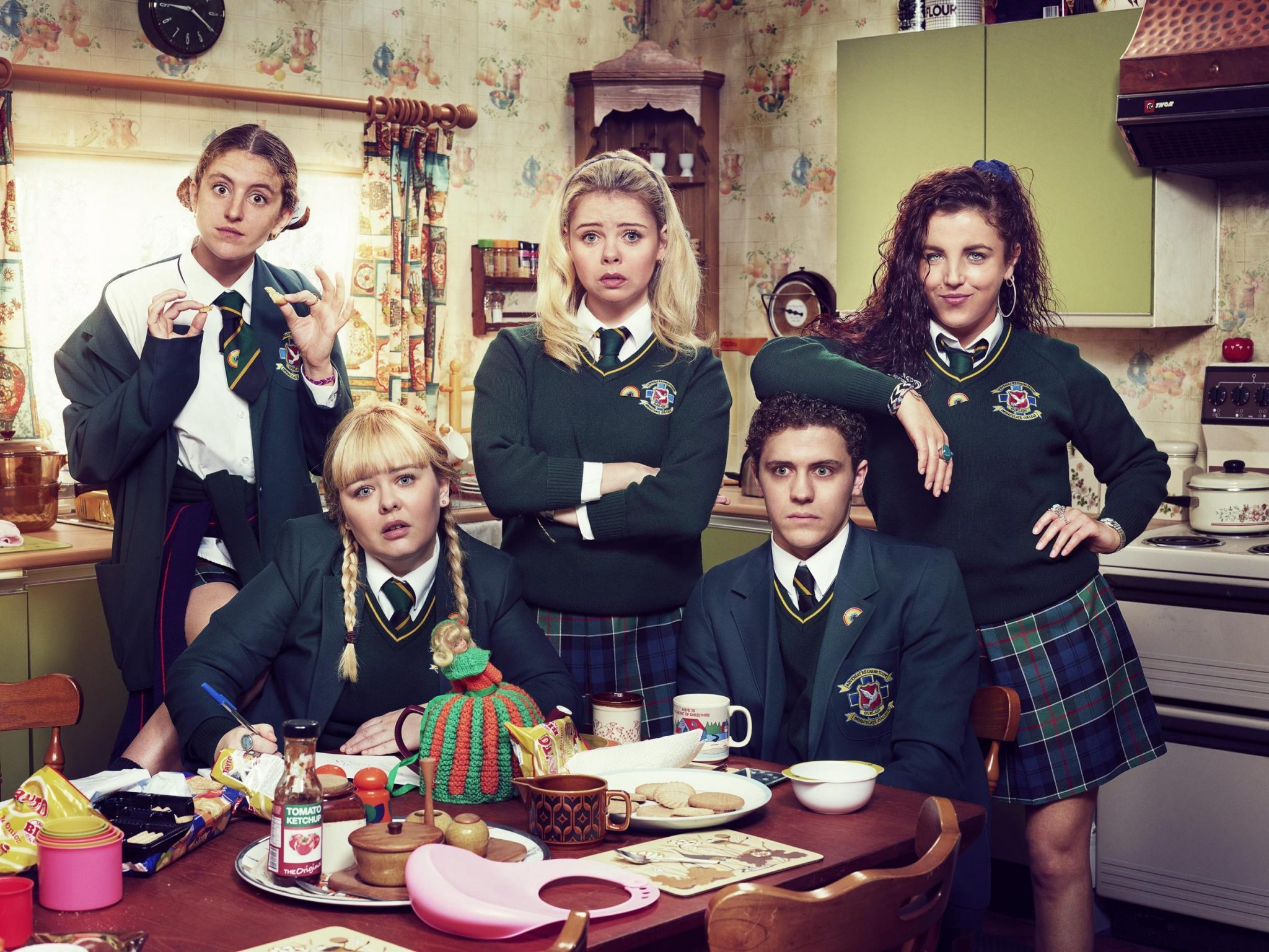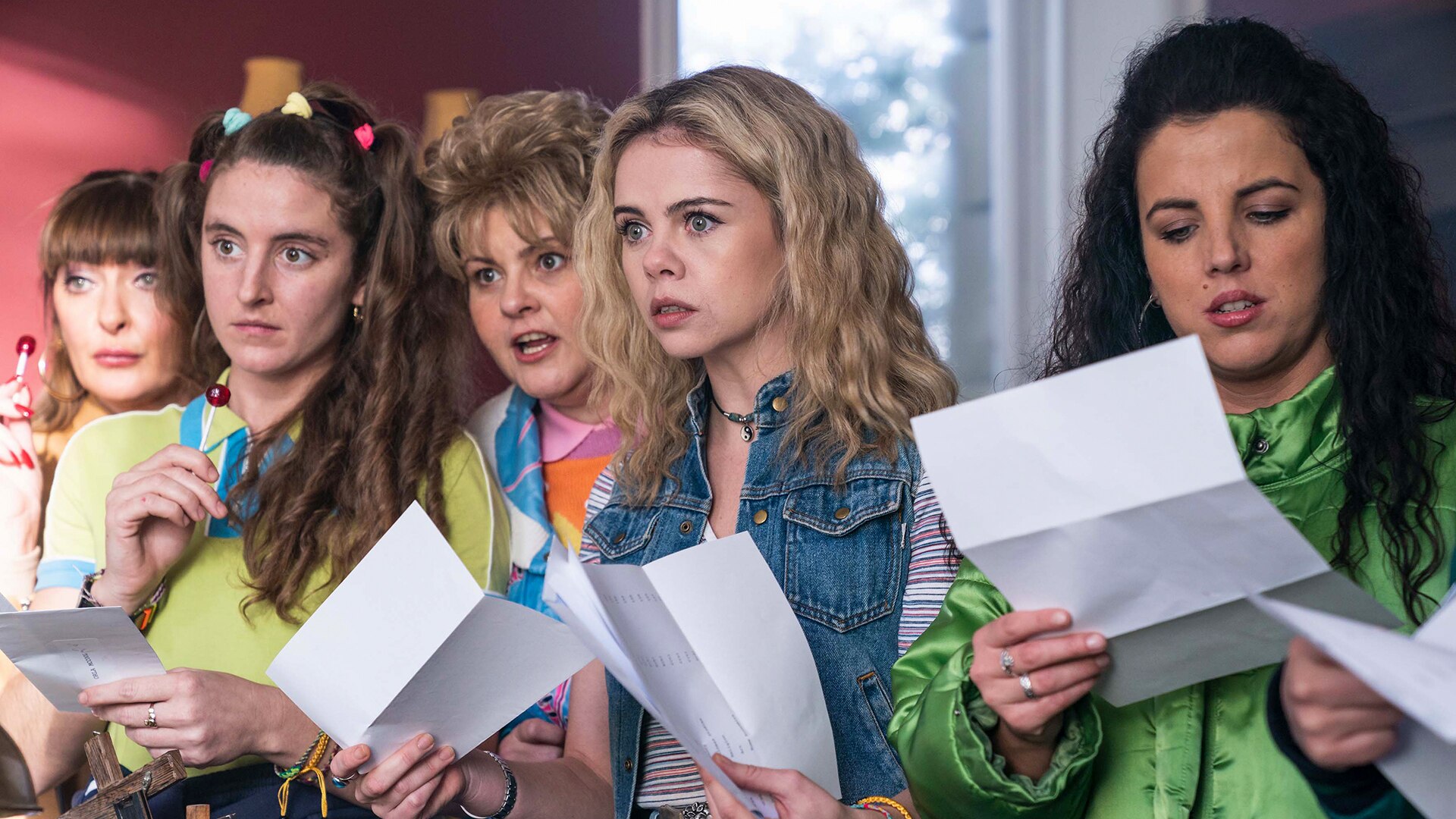With the conclusion of Derry Girls after three seasons, it seems as though the world is losing a little bit more than just a heartfelt and hilarious sitcom. A coming-of-age comedy about five teenagers in mid-1990s Derry, the series is actually set against the backdrop of the Troubles, a decades-long conflict that has defined the characters’ entire existence.
The series was created by Lisa McGee. James (Dylan Llewellyn), who is constantly mocked for being raised in Britain, learns this the hard way even as the Troubles fade into the background and he and his peers engage in more typical adolescent antics.
However, Derry Girls is more than just a history lesson about the Irish and the Catholic resistance for many viewers. It is also noteworthy for being one of the few remaining comedies with a focus on female characters.
While the mid-1990s saw the infamous cancellation of Claire Danes’ My So-Called Life after just one season, the present has seen the similarly abrupt cancellation of shows like Teenage Bounty Hunters (which Netflix will cancel after its 2020 season) and The Baby-Sitters Club (which lasted only two seasons on Netflix) and Paper Girls (which lasted only one on Netflix) (axed just six weeks after its Prime Video premiere).

Even though Derry Girls was given three full seasons to develop, it seems likely that similar opportunities will not be given to future series.
What, then, will TV be missing out on now that Derry Girls has ended? The show is primarily about female friendship, much like its similarly short-lived genre contemporaries. Despite their many differences, the friendship between Erin (Saoirse-Monica Jackson), Orla (Louisa Harland), Clare (Nicola Coughlan), wild child Michelle (Jamie-Lee O’Donnell), and James (often overlooked) holds strong.
The girls of Our Lady Immaculate College, a Catholic institution, support Clare after she comes out as a lesbian in the season one finale by wearing LGBTQ+ pride pins around campus.
The group faces a devastating possibility by the end of the following season: James’ potential return to London. James may be the group’s scapegoat, but losing even one of them would be devastating, especially to James’s cousin Michelle. The fact that “you’ve got that stupid accent” and “your bits are different than my bits” are irrelevant, she assures him. Because, you know, being a Derry Girl is a f*cking mentality.
Yes, you do belong here; you’re just like us. Since this is a friendship that goes beyond binary categories like gender and sexuality as well as political divides, the episode ends with James proudly proclaiming that he is a Derry Girl.
While the show’s emotional beats are consistently effective, what really keeps viewers hooked is Derry Girls’ trademark dry wit and a seemingly endless supply of one-liners. McGee, who wrote all 19 episodes, keeps the humor of the show rooted in its time, drawing on the ongoing tension in Northern Ireland and the Troubles for laughs of all sizes.
The girls attend a weekend-long peace initiative with a group of Protestants in the season two standout “Across the Barricade,” but instead of focusing on bridge-building, Erin and Michelle hope to hook up with boys they believe to be free of Catholic guilt and sexual hang-ups. Their clumsy attempt at romance is one of the episode’s highlights, and there are plenty of laugh-out-loud moments on the way to their happy ending.

For example, the list of Catholic and Protestant “Differences,” which includes “ABBA” and “Distance between the eyes,” is still one of the funniest things Derry Girls (or any show) has ever produced.
The show’s dedication to recapturing the vibe of the mid-1990s is another example of this granularity. While the teens jam out to the tunes of Salt-N-Pepa, the Cranberries, and hip-hop group Cypress Hill, the show’s adults (because what’s a teen comedy without a ragtag bunch of exasperated parents?) are glued to the tube, taking in actual political speeches and news broadcasts.
In a time of constant upheaval, music, fashion, and a group of ride-or-die best friends become a lifeline, and the upbeat music and depictions of devastating violence may seem to serve opposite purposes, but they are essential to Derry Girls’ message.
This loss hits especially hard because Derry Girls has consistently encouraged its characters to be bold and unapologetically themselves. Since girl- and teen-oriented shows were axed first, there isn’t much on TV to make up for the loss of Derry Girls.
Girls should see themselves and their experiences reflected in media, even if it is juxtaposed with jokes about a centuries-old conflict or the possibility of making money by babysitting.
Sorry to see you go, Derry Girls. There might never be another show like this again if we keep going at this rate.
This Friday, October 7th, Netflix will premiere the third and final season of Derry Girls.
